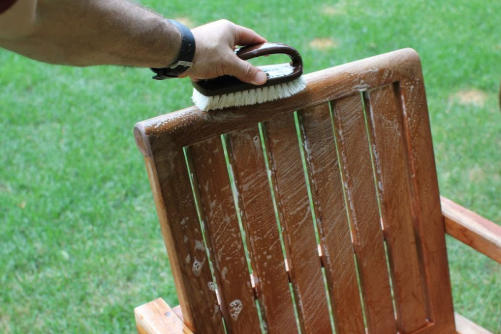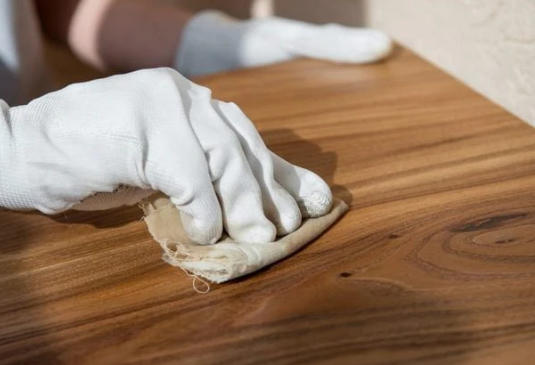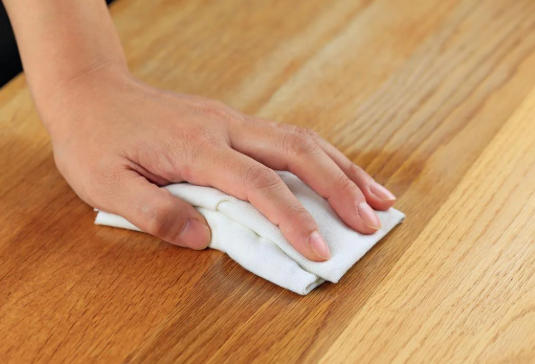Views: 222 Author: Rebecca Publish Time: 2025-10-27 Origin: Site
Content Menu
● Why Regular Treatment is Essential
● The Complete Step-by-Step Teak Treatment Guide
>> Step 1: Clean the Teak Surface
>> Step 2: Sand the Surface Smoothly
>> Step 3: Apply Teak Oil Properly
>> Step 4: Seal for Permanent Protection
>> Step 5: Optional Staining and Finishing
● Indoor vs. Outdoor Teak Treatment
● Teak Decks and Boat Applications
● Restoring Aged or Gray Teak Wood
● Long-Term Maintenance and Care Tips
● Recommended Teak Care Products
● Advanced Treatment Considerations
● Cultural Legacy of Teak Craftsmanship
● FAQ
>> 1. How often should I oil teak wood?
>> 2. Can I use regular wood varnish on teak?
>> 3. What causes teak to turn gray?
>> 4. Should I treat new teak furniture right away?
>> 5. Can I restore very old or neglected teak furniture?
Teak wood is a timeless treasure in the world of natural materials — known for its strength, durability, and extraordinary resistance to moisture and decay. Its rich golden-brown hue, tight grain, and elegant texture make it one of the most sought-after hardwoods in furniture making, shipbuilding, and architectural projects. However, even teak, with all its natural resilience, benefits greatly from proper care and treatment. Without attention, its warm color fades, and the surface weathers under constant exposure to the elements.
If you have a teak table, chair set, deck, or even an entire outdoor patio, understanding how to treat teak wood will help you preserve both its strength and aesthetic charm for decades.
This article explains everything you need to know — from preparation, cleaning, and oiling to sealing, restoring, and long-term maintenance — supported by professional tips and product recommendations.

Teak (Tectona grandis) is a tropical hardwood found primarily in Southeast Asian countries such as Indonesia, Myanmar, and Thailand. It is widely recognized for its high oil content, which acts as a natural protective barrier against pests, rot, and moisture. Teak has long been a preferred material in shipbuilding, luxury furniture, and outdoor architecture due to these natural defenses.
- Natural Weather Resistance: Its dense grain and embedded oils make it ideal for humid and marine environments.
- Dimensional Stability: It resists warping, shrinking, or splitting, even under extreme temperature fluctuations.
- Low Maintenance: Requires minimal upkeep compared to softer woods like pine or cedar.
- Beautiful Aging Process: Over time, teak develops a graceful silver patina that many homeowners find visually appealing.
These characteristics are what make teak both luxurious and practical. However, environmental exposure gradually breaks down the protective surface oils, making regular care necessary to extend its service life.
Even though teak is naturally hardy, it's still susceptible to discoloration, mildew, and surface degradation. Rainwater, sunlight, and airborne pollutants steadily erode the protective layer of natural oil. The wood remains strong, but the surface becomes dull and rough.
Regular treatment offers several valuable benefits:
- Color Preservation: Keeps the characteristic golden-brown tone instead of fading to gray.
- Enhanced Durability: Protects the fibers against UV damage, cracking, and fungal growth.
- Improved Aesthetic Appeal: Reveals wood grains and maintains a silky smooth finish.
- Ease of Cleaning: Treated surfaces accumulate less dirt and resist staining.
Whether you want to retain the fresh, newly-sanded golden look or embrace the aged silver tone, treatment helps you control the visual outcome and extend the lifespan of your teak furniture.
Treating teak wood requires patience, proper tools, and understanding of each phase. Let's break it down clearly.
Before applying oil or sealer, you must clean the teak thoroughly. Dust, grease, or mildew acts as a barrier that prevents treatment from penetrating effectively.
Materials:
- Mild soap or teak cleaner
- Water
- Soft sponge or brush
- Bucket and protective gloves
Procedure:
1. Mix the teak cleaner with water according to the product instructions.
2. Dip the brush or sponge, then gently scrub along the grain.
3. Focus on crevices or areas with dark spots and algae.
4. Rinse thoroughly with clean water.
5. Allow it to dry completely — usually 12 to 24 hours in well-ventilated conditions.
Avoid using strong detergents or power washers, as these can strip the surface or cause splintering.
Sanding rejuvenates the wood's texture and restores its natural glow. Removing the thin oxidized top layer reveals the richer grain beneath.
Steps:
1. Start with medium-grit sandpaper (around 120 grit) to remove rough spots.
2. Follow up with fine-grit (180–220) for a smooth, uniform surface.
3. Always sand following the wood grain to prevent scratches.
4. Wipe the surface with a clean, damp cloth to remove all dust before oiling.
After sanding, the teak surface will appear lighter and smoother, making it ready for oil absorption or sealing.
Teak oil brings out depth and warmth in color while providing an additional layer of moisture and UV resistance. It's especially recommended for furniture kept under partial cover or limited sunlight.
Application Process:
1. Stir teak oil well before use.
2. Using a soft brush or cloth, apply oil along the grain.
3. Wait 15–30 minutes for the oil to penetrate.
4. Wipe off any excess to prevent sticky buildup.
5. Let it dry for at least a full day before use.
For best results, apply 2–3 coats with drying intervals, polishing gently with fine steel wool between coats.
Re-oiling Frequency:
- Outdoor furniture: every 3–4 months
- Indoor teak: once or twice per year
A teak sealer differs from oil; it locks in color while preventing oxidation. Sealers also contain UV inhibitors that slow down weathering significantly.
When to Use a Sealer:
- Outdoor or marine environments
- Areas with intense sun exposure
- After restoring weathered teak
Application Tips:
1. Apply sealer using a clean brush or spray.
2. Two thin coats are better than one heavy layer.
3. Lightly sand between coats for a refined finish.
4. Allow full curing within 24–48 hours.
Important: Never apply sealer directly over oiled surfaces. Choose one system—either oiling or sealing—for consistent results.
Though teak's natural hue is stunning, some homeowners prefer darker or warmer tones. You can safely stain teak if it's been properly prepared.
1. Clean and sand the surface.
2. Apply a wood conditioner for even stain absorption.
3. Use an oil-based, teak-compatible stain.
4. Seal afterward to protect the tinted surface.
Staining provides aesthetic customization without compromising the wood's protective properties.

The approach changes based on where your teak resides.
- Avoid over-oiling to prevent greasy residue.
- Use light coats of lemon or linseed oil.
- Maintain with gentle wiping and dusting.
- Avoid direct contact with hot or wet objects.
- Clean every 2–3 months.
- Apply oil or sealer regularly.
- Use furniture covers during heavy rain or frost.
- Restore grayed surfaces annually through sanding and brightening.
Routine attention prevents surface dryness and extends its elegant look even under harsh outdoor conditions.
Teak is also exceptionally popular in marine environments, especially on decks and boat railings. Here, exposure is extreme, so the wood needs specialized care.
- Wash decks with bristle brushes and mild marine teak cleaner.
- Avoid sanding too often; it reduces deck thickness.
- Use marine-grade teak brighteners to remove salt and oxidation.
- Re-oil only sparingly — once every few months depending on climate.
This maintenance ensures the teak resists constant UV, salt, and moisture stress for years.
When teak turns silver-gray due to aging, don't worry — restoration is achievable.
1. Clean using a teak brightener or two-step cleaning system.
2. Allow the wood to dry thoroughly.
3. Sand lightly to expose the golden-brown tone beneath.
4. Apply oil or sealer to revive the shine.
Brighteners are especially useful because they neutralize discoloration without heavy sanding, preserving natural oil content and grain patterns.
- Avoid covering furniture with plastic tarps, as moisture can get trapped beneath.
- Use breathable outdoor covers made from polyester or canvas.
- Reapply oil or sealer regularly depending on exposure level.
- During winter months, store teak furniture indoors or under shelter.
- Wipe away spills quickly to prevent stains from beverages or oils.
- For marine teak, rinse with fresh water regularly to remove salt deposits.
Consistency is key. A few hours of care each season ensures your teak maintains brilliance for decades.
- Star Brite Premium Golden Teak Oil: Excellent color retention and UV filters.
- Watco Teak Oil: Ideal for indoor use, offering a satin finish.
- Howard SunShield Outdoor Furniture Oil: Infused with beeswax and UV inhibitors.
- Semco Teak Sealer: Preserves natural look for up to a year outdoors.
- Golden Care Protector: Water-based, eco-friendly, and easy to apply.
- TotalBoat Natural Teak Sealer: Designed for boats and extreme weather exposure.
- Two-Part Marine Brightener: Perfect for restoring heavily oxidized teak.
- Mild Soap and Vinegar Mix: Gentle cleaning option for indoor furniture.
Choose professional-grade products depending on climate, exposure, and finish preferences.
- Humidity and Temperature: High humidity can slow drying times; always treat in moderate weather.
- Surface Testing: Always test oil or sealer on a hidden area to preview final coloration.
- Environmental Care: Dispose of oily rags safely — they can self-ignite.
- Combining Finishes: Never combine varnish with oil; it traps moisture and causes peeling.
A disciplined approach ensures protection without compromising the texture or tone of the teak.
Historically, teak has been an integral part of craftsmanship across Asia. In Indonesia, traditional artisans have been crafting Jepara teak furniture for hundreds of years. The oil-rich properties of the Indonesian variety make it particularly resilient in tropical climates. Similarly, in British colonial times, teak was used for ship decks, palace doors, and public architecture, recognized for its stability in both humid and arid environments.
Modern designers continue this legacy, integrating teak into minimalist interiors and modern landscaping projects. Its understated luxury and natural endurance represent not just a material choice, but a cultural statement — a bridge between tradition and contemporary sustainability.
Teak wood is an investment that pays dividends in elegance, resilience, and long-term performance. Treating teak properly ensures that every grain and golden hue remains vibrant for years to come. By cleaning, sanding, oiling, or sealing as needed — and being consistent with seasonal care — you can preserve the beauty and endurance that make teak the king of hardwoods. Whether for indoor luxury furniture or outdoor living, cared-for teak never fails to impress.
Treat every maintenance session not as a chore but as an act of craftsmanship, continuing the centuries-old tradition of teak artistry.

Outdoor teak wood should typically be oiled every 3–6 months, depending on exposure levels. For indoor furniture, once or twice per year is sufficient to maintain its glow.
Varnish can seal in natural oils and lead to cracking or peeling. Instead, choose a high-quality teak oil or sealer designed for dense, oily hardwoods.
The gray patina results from sunlight and oxygen reacting with teak's surface oils. It's harmless and reversible through cleaning and light sanding.
Allow new teak pieces to cure naturally for several weeks outdoors before treatment. This provides time for excess factory oils to dissipate, helping oil or sealer adhere properly.
Yes. Use a two-step teak cleaner or brightener, followed by sanding and oiling. Even heavily weathered pieces can regain their original golden tone and smooth texture with patience.
Unveiling Mashonaste Wood: The Hidden Gem of South American Timber
Professional Q&A on African Movingui Wood - Hong Kong Senheda Wood Limited
Worry-Free Cross-Border Timber Procurement: Choose SENHEDA WOOD
Umbila: Value Analysis And Application Guide of A Rare African Hardwood
Wenge Has Become A Star Material in The Global Timber Market
Balsamo Wood: Nature’s Timeless Masterpiece for Luxury Craftsmanship